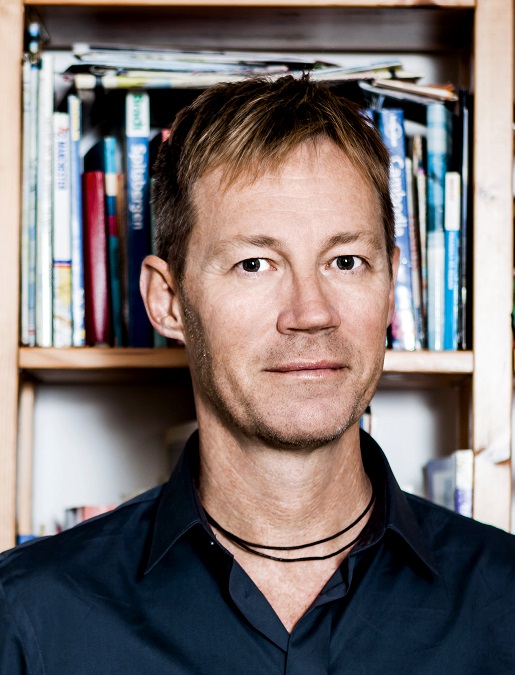KEYNOTE Speakers
 Susan Bassnett, FRSL, Professor of Comparative Literature, Special Advisor in Translation Studies, University of Warwick
Susan Bassnett, FRSL, Professor of Comparative Literature, Special Advisor in Translation Studies, University of Warwick
World famous Translation Studies scholar, one of the leading figures internationally, Honorary Professor at the University of Birmingham, Susan Bassnett is Professor of Comparative Literature at the University of Warwick and has just been appointed Special Adviser in Translation Studies for a 3 year period attached to the Sub-Faculty of Modern Languages.
She was educated in Denmark, Portugal and Italy, acquiring various languages in childhood. She established postgraduate programmes in Comparative Literature and then in Translation Studies at the University of Warwick where she also served twice as Pro-Vice-Chancellor. She continues to lecture and run workshops around the world and her current research is on translation and memory. She is an elected Fellow of the Institute of Linguists, elected Fellow of the Royal Society of Literature and a Fellow of the Academia Europaea. In recent years she has acted as judge of a number of major literary prizes including the Times/Stephen Spender Poetry in Translation Prize, the Independent Foreign Fiction Prize and the IMPAC Dublin prize. She is also known for her journalism, translations and poetry.
She is the author of a number of key works in the discipline, including the seminal textbook Translation Studies (4th edn 2013). She has also (co-)written or edited Translation, History and Culture (1990), Constructing Cultures: Essays on Literary Translation (1996), Postcolonial Translation: Theory and Practice (1998), The Translator as Writer (2006), Translation in Global News (2008), Political Discourse, Media and Translation (2010) and, most recently, Translation, in the Routledge New Critical Idiom series (2013).
Translation,Food and Cultural Difference
 Don Kulick - Distinguished University Professor of Anthropology, Uppsala University, Sweden
Don Kulick - Distinguished University Professor of Anthropology, Uppsala University, Sweden
Don Kulick is a linguistic anthropologist known for his work in Papua New Guinea, Brazil, and Scandinavia. His books include Language Shift and Cultural Reproduction: socialization, self and syncretism in a Papua New Guinean village (CUP, 1990), Travesti: sex, gender and culture among Brazilian transgendered prostitutes (U Chicago Press, 1998), Fat: the anthropology of an obsession (edited with Anne Meneley, Tarcher/Penguin 2005), Language and Sexuality (with Deborah Cameron, CUP, 2003) and, most recently, Loneliness and its Opposite: sex, disability and the ethics of engagement (with Jens Rydström, Duke, 2015).
“No wonder it smells so good, and tastes delicious”: translating food across the species boundary
If food, as the précis for this conference tells us, is “a cultural as well as social phenomenon that travels across languages, across cultures and across time and space”, it is also a material substance that travels across the species boundary. Since its inception in the late 1800s, the pet food industry has faced a challenge: it has had to create a demand in humans for a food product not intended for them, and that they themselves do not eat. The industry has done this by making animals’ gustatory pleasures, desires, and demands comprehensible for humans – through a process of translation. These translations condense much of what makes talk about food compelling, and include copious semiotics that index and invoke sensuality, affection, popularity (“8 out of 10 cats prefer Whiskas”), class, gender, nutrition, science and taste. My talk will illustrate and summarize some of the main strategies used by the industry to make pet food seem tasty for consumers who do not eat it, and I will suggest that these strategies demonstrate central areas of concern for research on food and translation.

Mapping the culture bound delights and distastes of food manners, rituals and feelings.
With increased intercultural contact, whether through tourism, student exchange, business or immigration comes the need to interact with others’ food, and the manners and rituals that accompany eating. Reactions to others’ completely normal and routine choices regarding food may equally be of delight, distaste or even disgust. Interestingly these reactions, though entirely personal will also be culture-bound, as well-worn tropes about others’ food and related habits demonstrate. This reaction can also lead to misattribution of intention.
The focus of this paper will be three-fold. The first objective will be to use some of these well-known culture-bound reactions to explore how culture as a system, and as a co-constructed model of reality, ‘works’. ET Hall’s Triad of Culture will be employed to bring to the surface some of the hidden aspects of ‘culture’ to show how and why response is often culture-bound.
Secondly, a Reattribution Generator will be introduced. This is a useful tool in reducing the culture-bound reaction; helps in disentangling the stereotypical attribution, and opens up the possibility of more positive reattribution.
Finally, the observations should also point to more mindful translations, where the translator accounts for cultural distance and likely reaction or misattribution. What will transpire is that the translation interventions will depend on the level of culture the mindful translator is translating for: food as a visible product; food as a practice, or food as an emotion. The level of emotion will clearly also relate to ethics and to the translator’s own position and possible conflict with the needs of the commissioner.
 Gerard Steen - Department of Dutch, Professor of language and communication. Universiteit van Amsterdam
Gerard Steen - Department of Dutch, Professor of language and communication. Universiteit van Amsterdam
Food as metaphor: Deliberateness and resistance in food-for-sex (and sex-for-food) metaphors
Food has been used to think and talk about a wide range of other phenomena, but the most interesting area is probably sex. The common view is that food is the typical domain that is automatically and unconsciously recruited to understand sex, with interesting cultural variations on this theme. However, I will try to show in this talk that this common view may need adjusting.
First of all, there seems to be a lot of awareness of the food-for-sex metaphor, with deliberate metaphor use exploiting the potential for innovative application. At the same time, this awareness also promotes resistance to at least some of the automatic and unconscious food-for-sex metaphors, leading to argumentation about appropriate food metaphors for sex. What is more, these tendencies may be observed in some cultures more than others, which ties in with the level of taboo that is related to the target domain of sex in these cultures.
Secondly, perhaps because of the sexualization of Anglo-Saxon culture, food is now being discussed in terms of sex, too, especially on the web in restaurant reviews. These web discussions also raise the question of deliberate versus non-deliberate metaphor use. In addition, first signs of resistance to aspects of this sex-for-food metaphor have also emerged.
It is the aim of this talk to explore some of the issues emerging from the use of food for sex (and sex for food) metaphors against the background of cultural variation. I will focus on the non-deliberate versus deliberate use of such metaphors, and connect this to the related phenomenon of resistance to metaphor. In this way, I hope to make a metaphorical but lively contribution to the conference theme of food across cultures and translation.

